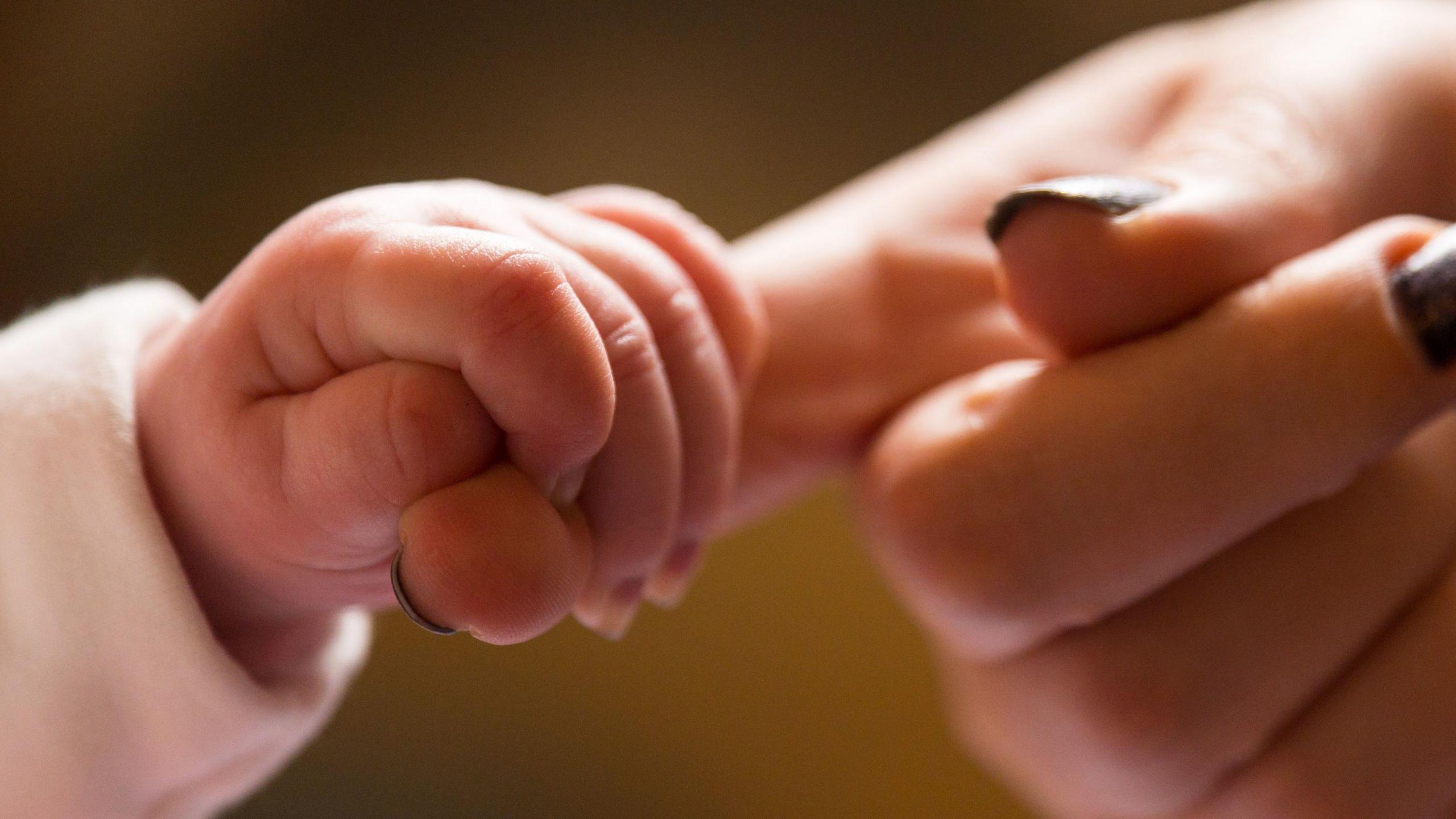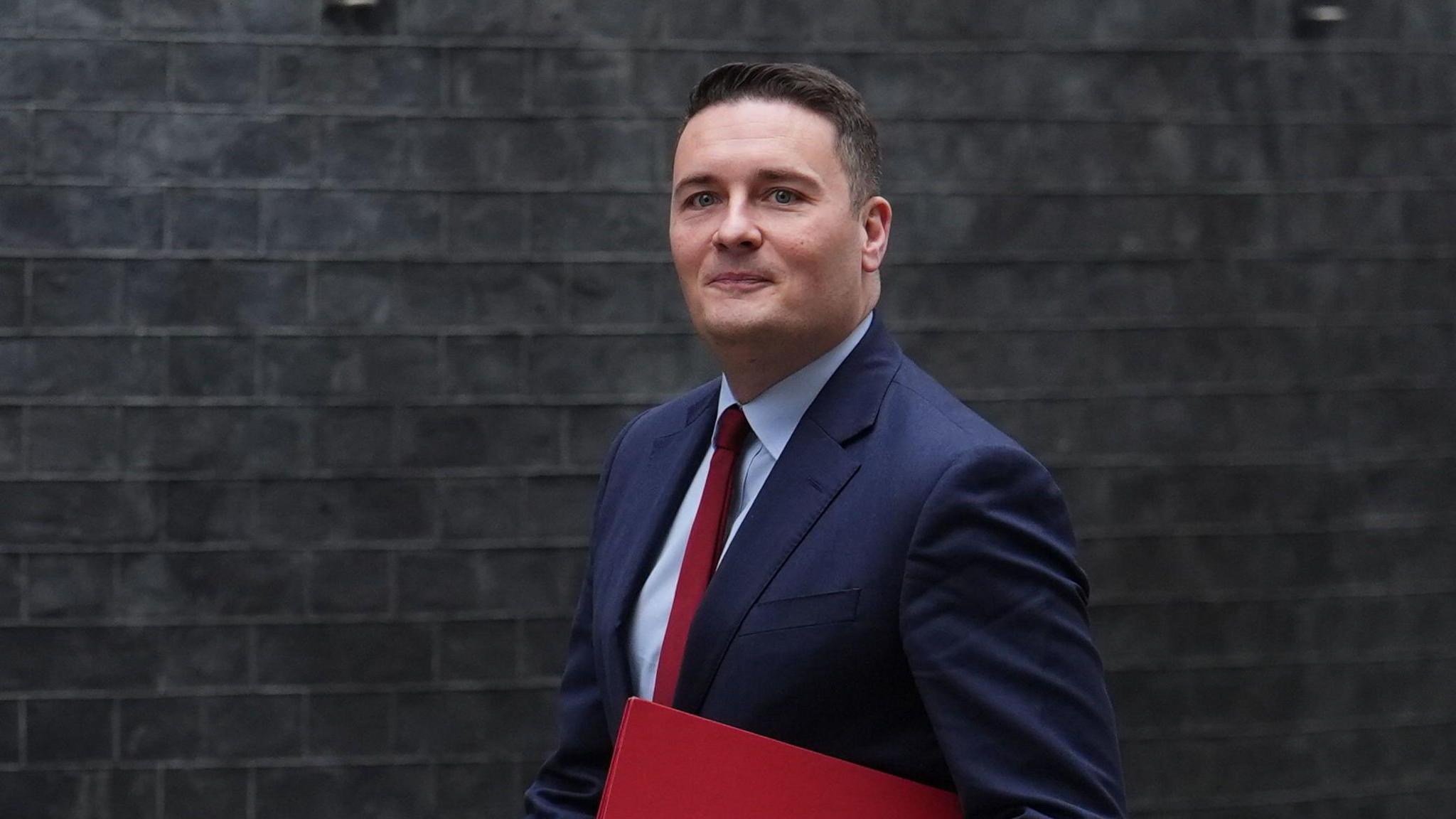NHS Scheme to cut childbirth brain injuries extended

The Avoiding Brain Injuries in Childbirth scheme could prevent conditions like cerebral palsy
- Published
An NHS scheme to reduce brain injuries in childbirth will be rolled out nationally after a pilot across nine hospitals including six in the North West.
The Department of Health said the scheme would help maternity staff "respond more effectively" in labour emergencies, including when a baby's head becomes lodged deep during a caesarean birth.
Since October, hundreds of maternity staff across north-west England and London have been involved in developing the programme, which could prevent conditions like cerebral palsy, external.
Health Secretary Wes Streeting said: "All expectant mothers giving birth in an NHS hospital should have peace of mind that they are in safe hands."
He said the Avoiding Brain Injuries in Childbirth (ABC) scheme would "give staff across the country the right tools and training to deliver better care to women and their babies".
It is hoped it will improve maternity staff's identification of when a baby is in distress during labour, leading to medics providing a quicker response.
The six North West hospitals where the scheme was piloted included Liverpool Women's NHS Foundation Trust and the Countess of Chester Hospital NHS Foundation Trust.
A Department of Health spokesperson said it wanted to "reduce unacceptable inequalities in maternity outcomes across England – so that most maternity units achieve outcomes comparable to the highest-performing 20% of trusts".

Wes Streeting said the scheme would reduce the "devastating impact of avoidable brain injuries"
In 2024, an inquiry into traumatic childbirths called for an overhaul after finding poor care is "all-too-frequently tolerated as normal".
Mr Streeting said the government was "supporting trusts to make rapid improvements and training thousands more midwives – but I know more needs to be done".
"We will put women's voices right at the heart of our reforms as we work to improve care."
The government said it was also "dedicated" to improving maternity services as well as "setting an explicit target to close the Black and Asian maternal mortality gap".
'Time-sensitive situation'
Ranee Thakar, president of the Royal College of Obstetricians and Gynaecologists, added: "The ABC programme supports multidisciplinary maternity teams to deliver safer, more personalised care.
"We have heard what a difference it makes, supporting teams to work effectively together in time-sensitive and high-pressure situations.
Gill Walton, chief executive of the Royal College of Midwives, said the "key to the success" was "based on the voices of women, families and maternity staff".
"Every midwife, maternity support worker, obstetrician, anaesthetist and sonographer wants to provide good, safe care – and the best way to do that is by working and training together."
Twelve sites participated in the pilot scheme, including six in the north-west of England.
They were Countess of Chester Hospital NHS Foundation Trust, East Lancashire Hospitals NHS Trust, Lancashire Teaching Hospitals NHS Trust, Liverpool Women's NHS Foundation Trust, Warrington and Halton Teaching Hospitals NHS Foundation Trust, Wirral University Teaching Hospital NHS Foundation Trust.
Get in touch
Tell us which stories we should cover in the North West
Read more stories from Cheshire, Lancashire, Greater Manchester and Merseyside on the BBC, watch BBC North West Tonight on BBC iPlayer and follow BBC North West on X, external.